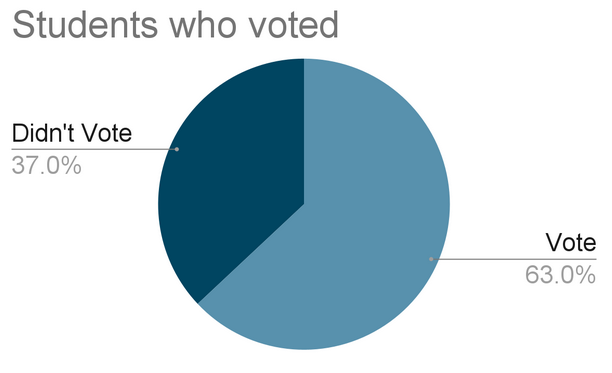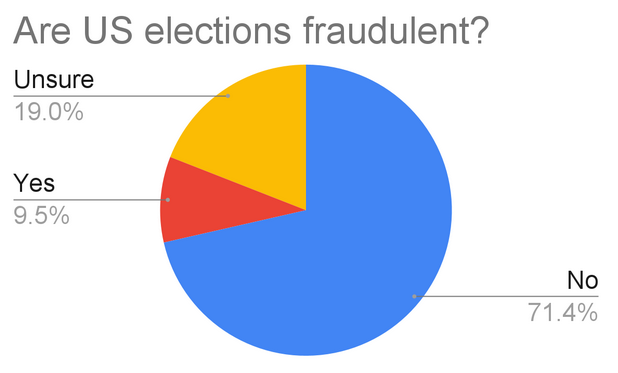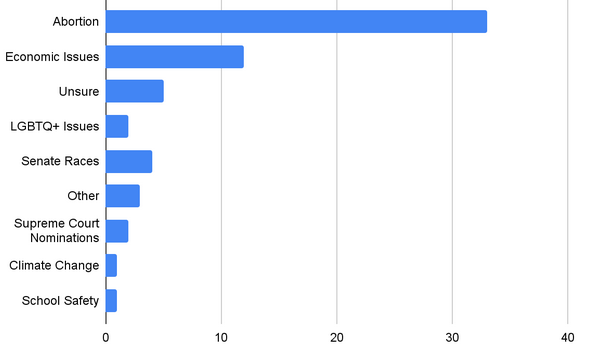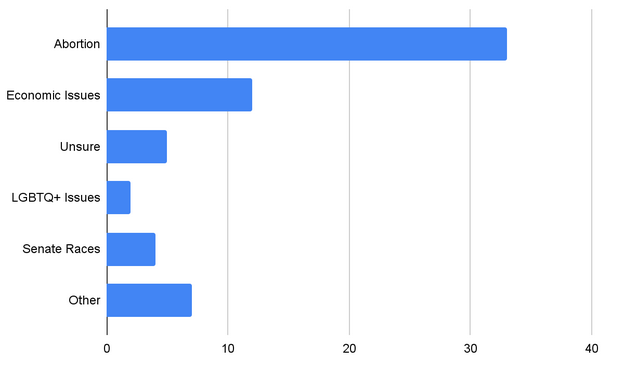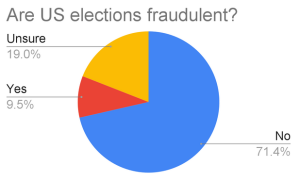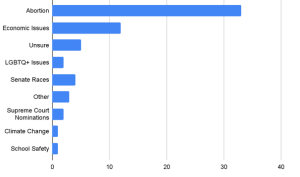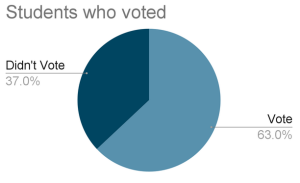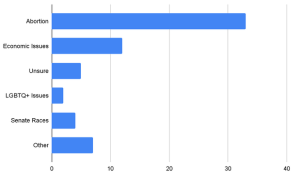Student poll: voting habits and motivations
November 16, 2022
Political analysts across various TV networks and their claims of an imminent “red tsunami,” plagued the airwaves months prior to the 2022 midterm elections. A “red tsunami” is when the Republican party gets a large increase in votes.
The results of election day subverted those expectations, and those same analysts said this was largely due to the demographic of 18-29 aged voters.
27% of voters between the ages of 18-29 showed up to vote this year, according to NPR, making it the second largest midterm turnout for that demographic. The highest was 26% in 2018. Out of a poll of 100 CWU students, 63 said that they had voted.
As youth voter turnout has increased, CWU student voter turnout has also increased.
ASCWU Director of Governmental Affairs Joseph Burke said that more CWU students have been voting recently.
“In the last few years absolutely we’ve seen an upward trend of students coming in to register to vote and to vote,” Burke said.
The students who voted were asked what they thought the most important issue this election season was.
33 of the 63 student voters polled said abortion and reproductive rights were the most important thing on the ballot.
The second most important issue according to polled student voters was economic issues. 13 of the polled students thought that economic topics such as inflation and gas prices were the most important issues, with the most common reason for this being the universal affects the economy has on people.
“Gas prices rising is an issue because we live in a country with very little public transportation,” second year public relations student Brian Valencia said. “If you want to go anywhere outside of town, you need to use a car to do so and that means buying gas.”
Students being unsure of the most important political issue to them was the third most common answer with five answers. A number of students said they didn’t know a lot that was on the ballot until they were in the process of voting, and four students said that after voting they still weren’t entirely sure what they had just voted on.
Of the 63 students polled, 45 said they felt that the electoral process had little to no fraud. Six said they believed there was widespread corruption in the electoral process, and 12 said they were unsure. 47 of the polled students felt that mail-in voting had little to no fraud. 12 out of 63 said that mail-in voting leads to voter fraud and three said they are unsure.
Students who didn’t vote often said that the reason they didn’t vote was because they didn’t know how.
“I registered to vote, but I didn’t know what I was supposed to do to actually vote,” freshman computer science student Monalisa Tauanuu said. “It just feels like the resources that tell you how isn’t very accessible.”
Third year biomedical science student Dylan Arrendono said the reason he didn’t vote was because he didn’t feel his vote mattered.
“I just feel like my vote wouldn’t matter either way,” Arrendono said. “It just isn’t impactful.”



